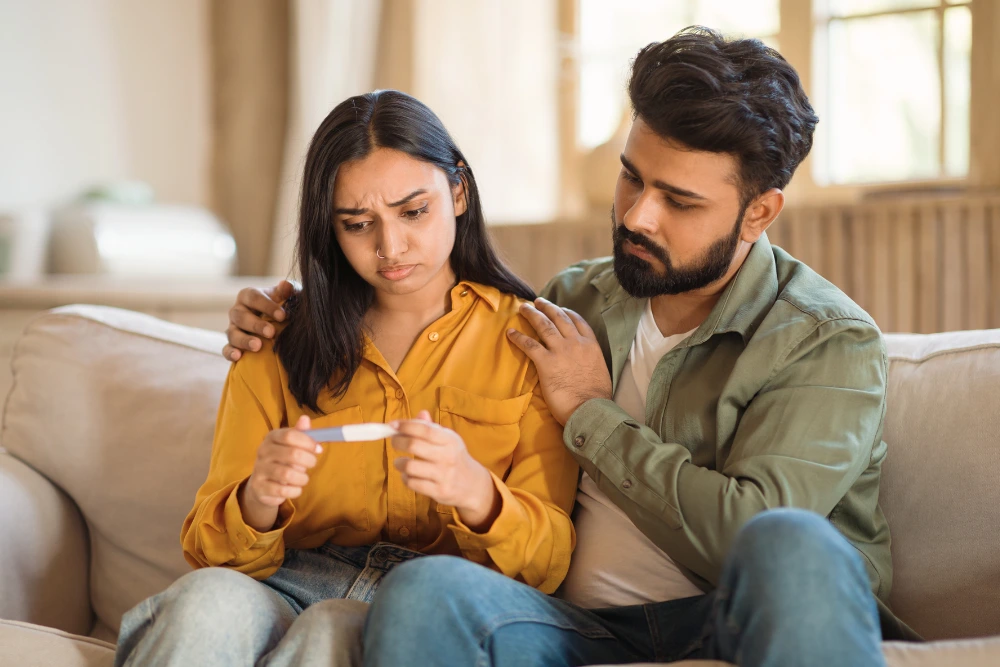
How do low AMH levels affect fertility?
Understanding AMH: The Basics
AMH or Anti-Müllerian Hormone is a hormone secreted by the ovarian follicular granulosa cells. It's an ovarian reserve biomarker. AMH differs from other fertility indicators, such as FSH or LH, in that it does not change much within the menstrual cycle and is a good measure to gauge the reproductive potential. AMH values are in nanograms per millilitre (ng/mL) for fertility tests. The interpretation can be reduced to this:
- Greater than 3.0 ng/mL – Above average ovarian reserve
- 1.0 to 3.0 ng/mL – Normal range
- Less than 1.0 ng/mL – Low ovarian reserve
Low AMH is frequently misconceived. It only measures egg quantity and not its quality. Most women with low AMH conceive naturally or by assisted reproduction.
What Does "Low AMH" Really Mean?
Hearing "low AMH" could be a wake-up call, especially for women above the age of 30 or who wish to get pregnant later in life. But one needs to demystify what exactly it means.
Low AMH typically points to a dwindling pool of follicles in the ovaries. AMH levels start falling substantially by 35, and by 40, most women fall into the "low AMH" category.
Though it implies fewer eggs, it doesn't mean that:
- Pregnancy is impossible.
- Menopause is in the near future.
- IVF is your sole choice
Numerous women who have AMH levels less than 1.0 ng/mL have become pregnant, sometimes naturally and sometimes with fertility assistance. A 2020 study in Fertility and Sterility discovered that 25% of women with low AMH became pregnant naturally within 12 months.
How Low AMH Impacts Fertility Planning
What low AMH does alter is the timeframe and the approach.
If you're below age 35 and have low AMH, fertility experts might suggest:
- Natural conception attempts for 6 months
- Ovulation and menstrual cyclicity monitoring
- Follow up with early fertility testing if required
If you're above age 35, recommendations tend to focus on more proactive fertility planning. Low AMH doesn't necessarily indicate the absence of eggs, but it could imply that waiting for long might cut back on options at a later date.
Assisted reproductive technologies (ART) such as IVF with your eggs, minimal stimulation protocols, or egg freezing can be recommended based on your age, egg quality, and partner's fertility parameters.
What Can You Do If You Have Low AMH?
Here are realistic, evidence-informed strategies:
1. Lifestyle Changes
No lifestyle change can boost the number of eggs, but some habits can optimise egg health:
- Having a healthy BMI
- Avoiding tobacco and excessive alcohol
- Managing stress
- Maintaining good sleep and a balanced diet
2. See a Fertility Specialist Early
Early and frank consultation with a fertility specialist is essential. They might suggest:
- Testing ovarian reserve (AMH, AFC, FSH)
- Timed intercourse or induction of ovulation
- IVF with egg retrieval before further deterioration
- Fertility preservation in case of delayed pregnancy
3. Know Your Options
Low AMH does not rule out the chance of a natural pregnancy. It's simply that if your AMH is low and you're already facing other issues such as irregular cycles, endometriosis, or problems with your male partner, early intervention from doctors can make all the difference.
In select instances where IVF with one's eggs fails, donor egg IVF is a viable and empathetic route to parenthood, with outcomes of up to 60–70%.
Conclusion
Low AMH is a signpost, not a stop sign. It indicates that the ovarian reserve is in decline, but it doesn't indicate whether you can or can't have a baby. Lots of women with low AMH end up becoming mothers, either naturally or after a bit of assistance.

